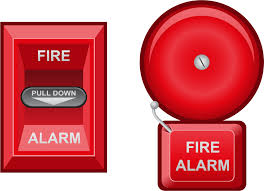 As a geriatric care manager, the most common comments I get when I speak to groups seem to start with “I wish I had known you when…” The “when” is usually followed by a family story of mom’s fall and broken hip, dad’s dementia diagnosis, a dear friend who has THAT diagnosis. We may call it care management, but Dr. Phil calls it “crisis management,” and in his recent book titled Real Life, he says: “For most of us, our formal education and other life experiences don’t give us any information about crisis management, problem solving, or even problem recognition.”
As a geriatric care manager, the most common comments I get when I speak to groups seem to start with “I wish I had known you when…” The “when” is usually followed by a family story of mom’s fall and broken hip, dad’s dementia diagnosis, a dear friend who has THAT diagnosis. We may call it care management, but Dr. Phil calls it “crisis management,” and in his recent book titled Real Life, he says: “For most of us, our formal education and other life experiences don’t give us any information about crisis management, problem solving, or even problem recognition.”
So, in an age when you can Google anything, most people do just that when the crisis hits. But when you Google anything, that is just about what you find…anything. Not only that, but it rarely is just one crisis that caregivers to older adults have to address. In interviews with three dozen Care Managers in 2016 and 2017 we asked them to talk to us about their clients. Their experiences with families going through crises of caregiving fall into the following categories:
| TYPE OF CASE | % |
| Alzheimer’s Disease, Dementia | 66.2 |
| Home Safety | 66.2 |
| Medication Questions, Complications | 58.2 |
| Acute Medical Crises | 50.3 |
| Inadequate Self-Care | 48.0 |
| Chronic Medical Condition | 46.8 |
| Family Support | 45.5 |
| Residential Transition | 39.9 |
| Patient Discharge, Home Care | 38.6 |
| Financial Challenges | 33.7 |
| Other | 34.5 |
What is the important takeaway from this table? It’s the numbers. We asked the Care Managers whom we interviewed to tell us what percentages of their clients fall into each of the categories you see. It may be no surprise that clients may have more than one issue going on at a time, but the sum total of what you see here is well over 500%…527% to be precise! It gets complicated when more than one thing is going on at the same time. The older parent of this family is diagnosed with Alzheimer’s disease, but in all likelihood this person also is at risk for what professionals term elopement, or wandering. They may just wander off, and not recognize where they end up. Hopefully they will be fortunate and be found by a well-intentioned neighbor or police officer who can help them return to the safety of home. So, right off the bat we have dementia and home safety issues, but they also may not be compliant with their medications for a chronic cardiac or respiratory condition because they do not remember. They may have been victimized by a telemarketer to whom they have given their credit card information which is how the family identified that dad has memory issues in the first place. And now the family reaches out for help to find a secure residential option. So, it rarely is just one issue that creates a crisis for the new caregiver; it’s a five alarm fire.
Okay, I share this brief example not to scare you to death, but rather to get your attention and let you know what the caregiver reality is all about. What caregivers need to do is first, realize they do not have to go it alone. Second, it can be really helpful to find someone who knows the good options from the bad options, because Google offers options, but does not know the difference.
Charlotte Bishop is a Geriatric Care Manager and founder of Creative Care Management, certified professionals who are geriatric advocates, resources, counselors and friends to older adults and their families in metropolitan Chicago. Please email your questions to info@creativecaremanagement.com.





